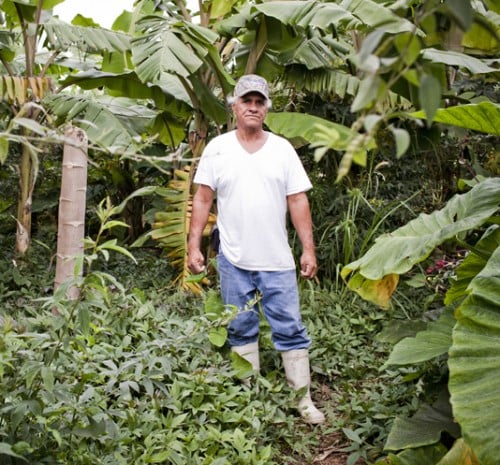This spotlight is a feature in a series of the USDA Community Food Project Competitive Grant Program (CFP). Grantees are doing some of the most innovative and collaborative projects to change local and regional food systems. WhyHunger’s www. — also funded by a CFP grant — is profiling these organizations through dynamic stories and pictures, to give a real flavor of what the projects look like and how they’re accomplishing their goals. Up today: Vida Verde Farms — Earth Learning Center, Homestead, FL. Story and pictures by David Hanson.

Juan Lopez arrived to the US as an exile, with the Coast Guard flying overhead. He was in a twenty-seven-foot boat with around forty other Cubans. They landed on Cayo Hueso (Bone Key, as the Cubans refer to Key West). He took a bus to Miami. It was 1980. Castro had thrown up his hands and allowed for dissidents to leave the island after a wave of insurrection, including a busload of defectors who crashed through the gates of the Cuban-Peruvian embassy. For six months fishing boats and small leisure boats shuttled Cubans across the Florida Straits, bringing them to America.
Juan, then in his late 20s, was lucky. He had family already living in south Florida. He was a semi-skilled tradesman and he found construction work in Miami. For two decades he worked in construction, making decent money, supporting his wife and family of ten children. He paid $750/month in rent for an apartment.
Then the construction company laid him off. He couldn’t find other work. He couldn’t pay the bills or the rent. His wife and three kids have diabetes so the medical bills added up. Juan had to move his family out of the apartment. He even lived under a bridge for a few days. Eventually, after exhausting options in Miami, Juan moved with his wife and the three kids still living at home to Homestead where there was a homeless shelter managed by the Homeless Trust of Miami-Dade County.
 Juan points in the direction of that shelter, the Chapman Shelter, as he walks me through the Vida Verde Farm. The five-acre poly-culture farm is part of a major redevelopment of the former Homestead Air Force Base. The base was destroyed in Hurricane Andrew and has since become an Air Reserve base with a chunk of land donated to the Homeless Trust. The Chapman Shelter opened in 1998, offering meals and refuge for homeless residents of the county for up to one year. But that left a difficult transition into conventional housing for many people.
Juan points in the direction of that shelter, the Chapman Shelter, as he walks me through the Vida Verde Farm. The five-acre poly-culture farm is part of a major redevelopment of the former Homestead Air Force Base. The base was destroyed in Hurricane Andrew and has since become an Air Reserve base with a chunk of land donated to the Homeless Trust. The Chapman Shelter opened in 1998, offering meals and refuge for homeless residents of the county for up to one year. But that left a difficult transition into conventional housing for many people.
Read the full profile at Community Voices, a WhyHunger digital storytelling site showcasing voices of leaders and communities across the country on the front lines of food justice.




